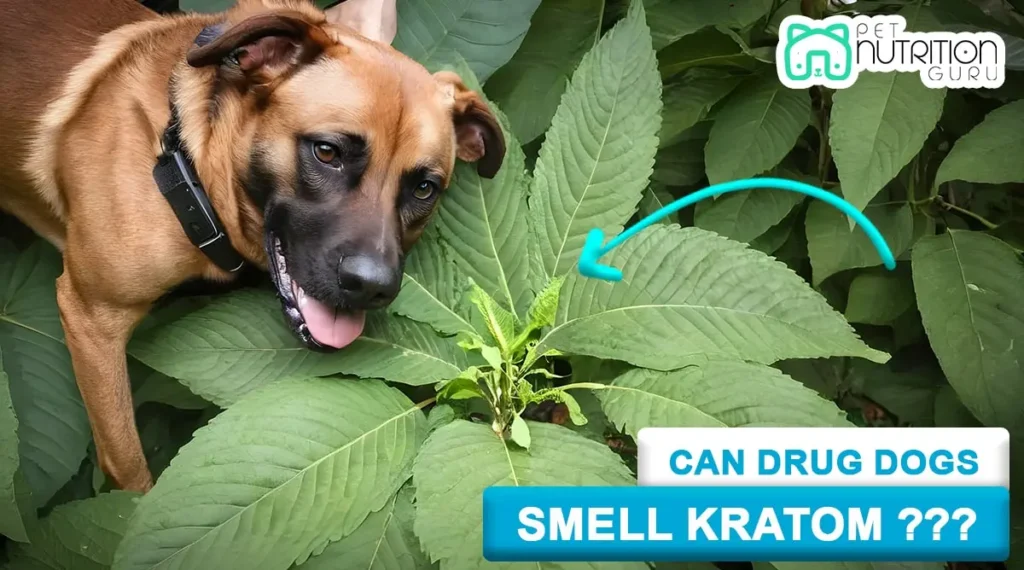So, picture this: you’re settling down for your daily grub, ready to take that satisfying first bite. Then, there’s your dog, giving you those irresistible puppy eyes, practically begging for a taste. What do you do? Share a bit, of course! But hold on, what if your furry friend is allergic to what’s on your plate? What if it’s Kimchi? Can Dogs Eat Kimchi? Is kimchi safe for dogs? Let’s dive into it!
Can a Dog Eat Kimchi?
“No, Kimchi is not good for dogs. Kimchi contains ingredients such as garlic and onions, which are harmful to dogs. However, a bit of kimchi will not be affected.“
In this article (Can Dogs Eat Kimchi), we’ll explore the side effects of Dog Eat Kimchi and what makes Dog Behavior Changes. We will discuss comprehensively “Is Kimchi Healthy?” and know the possible causes of Vaccine Reactions in Dogs.
What is Kimchi?
Kimchi, or kimchee, a Korean side dish, has gained popularity worldwide in recent years. It involves fermenting vegetables, commonly cabbage or Korean radish (mu), seasoned with ingredients like spring onion, garlic, onion, and chili pepper.
Different types include Baechu-kimchi with whole napa cabbage leaves, kkakdugi made with radish and fermented shrimp, and nabak, watery kimchi, among others. The diverse varieties offer unique flavors and textures to cater to different tastes.
Kimchi has become a versatile dish enjoyed not only in Korea but also embraced globally for its distinctive and delicious qualities.
Popular Question: “Can Dogs Eat Breadfruit?“
Can Dogs Eat Kimchi?

So, while we humans can enjoy the goodness of kimchi, it’s a different story for our furry pals. Big servings of kimchi aren’t great for dogs because it has some ingredients that are a no-go for them.
These can include (depending on the recipe used):
- Garlic
- Onions
- Salt
- And more
Now, don’t panic if your dog grabs a tiny kimchi bit off the floor – that’s probably okay. But, if your pup goes for a larger helping, watch out for signs like stomach pain, nausea, diarrhea, and vomiting. These symptoms usually ease within 12-24 hours, but if things don’t improve or get worse, it’s vet-calling time.
In a nutshell, letting your dog feast on kimchi isn’t the best plan. A nibble might be fine, but keep an eye on your buddy, and if anything seems off, reach out to your vet. They’re the experts in keeping our fur babies healthy!
Popular Question: “Can Dogs Eat Twinkies?“
Can Dogs Eat Fermented Foods?
You know, adding fermented food to your diet is great for your health, and guess what? It’s awesome for your dog too! Fermented goodies do wonders for your dog’s health – those good bacteria are like little superheroes for digestion and keeping things moving smoothly.
But hey, gotta be a bit careful, watch out for any tricky ingredients, and don’t go overboard with the fermented treats. Your best move? Have a friendly chat with your vet about how much and how often to treat your dog to these fermented delights. They’ll give you the scoop!
Most Popular Question: “Can Dogs Eat Bread?“
What are the Health Benefits of Fermented Food for Dogs?

Your pup can get some awesome health perks from adding a bit of fermented food to their chow. Fermented foods are like a nutrient goldmine, loaded with essential stuff like enzymes and vitamins.
Now, let’s talk about why kimchi, the dog-friendly kind, is a top pick:
- Boosts Vitamin B
- Throws in Amino Acids
- Packs a Punch of Vitamin C
- Delivers Vitamin K Goodness
- Comes with Antioxidant Goodness
- Brings Anti-inflammatory Properties
It’s like a superhero lineup for your dog’s well-being! So, go ahead, and let your furry friend enjoy these benefits with a dash of kimchi in their diet.
Popular Question: “Can Dogs Eat Breadfruit?“
Can Dogs Eat Kimchi Rice?
No, while kimchi rice might seem milder than regular kimchi, it still contains ingredients that aren’t suitable for dogs. It’s better to go for plain rice if you want to share a snack with your furry friend.
Is Kimchi Rice Toxic for Dogs?
No, these rice are not toxic for cats. Rice itself is not toxic to cats and can even be included in some commercial cat foods as a source of carbohydrates. However, it’s important to note that cats are obligate carnivores, meaning their diet should primarily consist of animal-based protein.
While small amounts of plain, cooked rice may be safe for cats to eat as an occasional treat, it should not replace their regular diet.
Yes, while kimchi rice might seem milder than regular kimchi, it still contains ingredients that aren’t suitable for dogs. It’s better to go for plain rice if you want to share a snack with your furry friend.
Discovering Dog-Friendly Kimchi:
When it comes to sharing snacks, we must be careful with our furry pals. Experts say a bit of fermented food like kimchi might be good for dogs. But here’s the catch: moderation is key, and not all dogs react the same way.
Popular Question: “Can Dogs Eat Pineapple?“
Is Kimchi Toxic for Dogs?

Yes, kimchi can be toxic to dogs due to ingredients like garlic and onions. These components may lead to gastrointestinal upset and harm red blood cells in dogs. It’s advisable to refrain from giving your dog kimchi or any spicy, seasoned foods and instead opt for a diet suitable for canine consumption.
If you suspect your dog has consumed kimchi or any potentially harmful food, it’s crucial to contact your veterinarian for guidance.
The Pet Nutrition Guru Solution
At Pet Nutrition Guru, we understand the nuanced needs of our beloved pets. Our commitment lies in providing valuable insights to dog owners, aiding them in making informed decisions about their furry companions’ diets.
For personalized guidance on the “Can Dogs Eat Kimchi” dilemma, our resources and expert advice are at your disposal.
Popular Question: “Can Dogs Eat Oranges?“
Why Can’t Dogs Digest Some Vegetables?

Understanding the unique digestive system of dogs is crucial for providing them with a balanced diet. Unlike humans, a dog’s digestive system is not optimized for processing or breaking down vegetables efficiently. However, incorporating certain vegetables into their diet can contribute to their overall nutrition.
It’s important to note that high-fiber foods, such as vegetables, take longer to digest. This is because a dog’s digestive tract is approximately 20 times shorter than that of a human. While dogs excel at digesting meat and similar foods, including some vegetables in their diet can offer valuable nutrients.
Consider the difference in teeth between humans and dogs. Human teeth are flat and long, making it easy to chew vegetables. In contrast, a dog’s teeth are sharp and long, adapted for biting and chewing meat.
If you observe your dog’s feces, you may notice undigested vegetables, and this is entirely normal. It reflects their natural digestive process. By being mindful of these differences and incorporating vegetables appropriately, you can enhance your dog’s nutritional intake and promote their overall well-being.
Popular Question: “White Line on Dogs Nose“
Conclusion
In the grand tapestry of canine culinary exploration, the question of whether dogs can eat kimchi unveils a spectrum of possibilities. As dog owners and pet lovers, it’s our responsibility to balance culinary curiosity with the well-being of our furry companions.
With a touch of mindfulness and a dash of knowledge, we can ensure that our dogs enjoy a happy and healthy life.
Disclaimer
This Article (Can Dogs Eat Kimchi) contains essential information. We are not a veterinarian but we have Pet Dietary professionals. If your Dog discloses any indication of ailment, call your veterinarian.
Bear in mind that every Dog is Different, and if you have any worries regarding your Canine’s Health or practices, do not wait to seek specialist recommendations from your veterinarian.
If you want more Knowledge about Pet Behavior (Cats & Dogs), visit our Blog Section.
FAQs (Frequently Asked Questions)
The bacteria used to make kimchi are usually safe to eat. But if kimchi isn’t prepared or stored correctly, the fermentation process might cause food poisoning. So, if you have a weaker immune system, it’s important to be careful when having kimchi or other fermented foods. Making sure to prepare and store kimchi properly can make it a safer and tasty choice for everyone.
Options like kefir, yogurt, buttermilk, sauerkraut, ginger carrots, kimchi, and beets are some of the choices for incorporating dairy and vegetables. Choose dairy products made from whole, unpasteurized milk without sweeteners or thickening agents when possible.
Latest Articles:
- Can Dogs Eat Soursop Fruit? Find Out the Truth Here
- Can Drug Dogs Smell Kratom? The Shocking Truth Revealed
- When Do Dogs Go into Heat after Having Puppies?
Subscribe to Pet Nutrition Guru
Subscribe below to receive expert pet care advice, pet wellness tips, and exclusive promotions.




